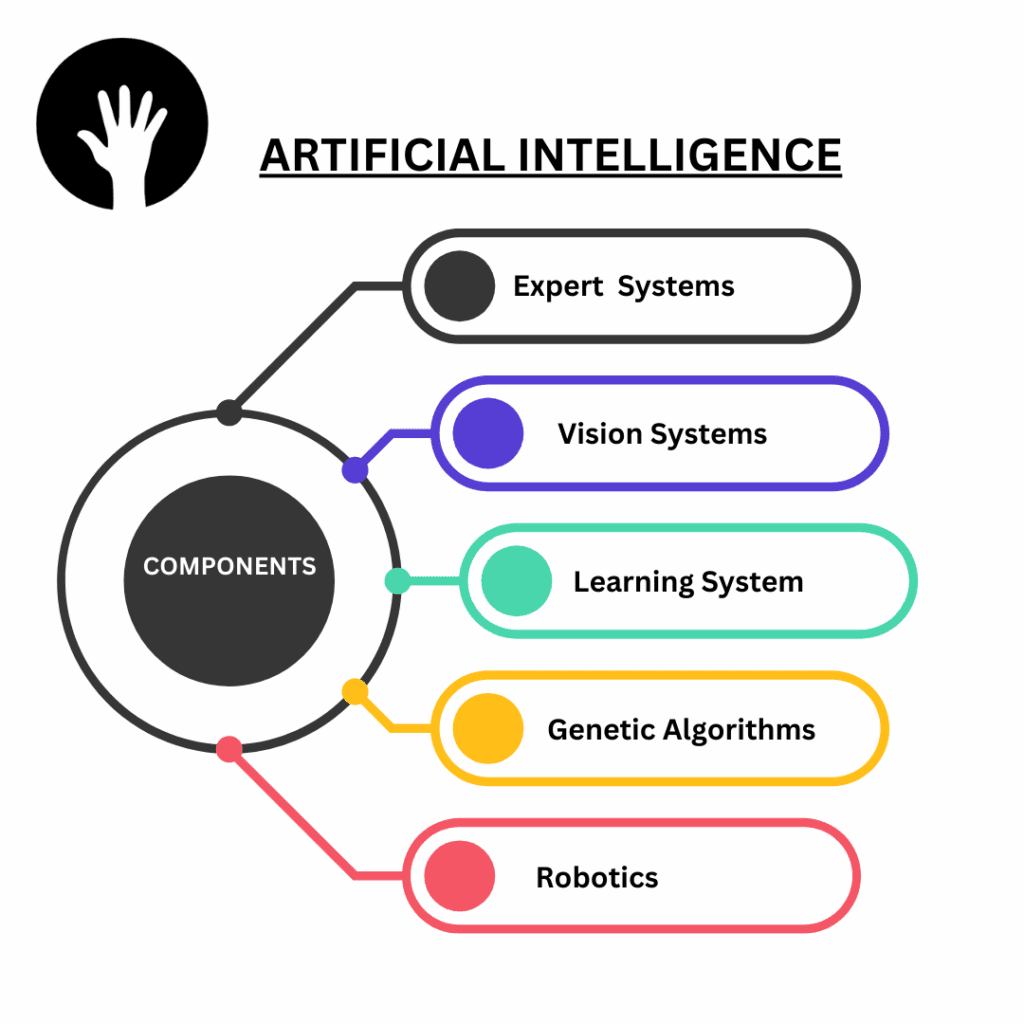
As businesses of all sizes continue to incorporate more advanced technologies into their operations, artificial intelligence (AI) has become the go-to solution for many operational tasks. AI allows for automated decision-making processes and helps to streamline manual tasks, ultimately saving businesses both time and money. In addition, AI is an invaluable tool for collecting and analyzing data, allowing businesses to gain insight into customer behaviors and trends. By using AI to understand their customers better and make decisions, businesses can stay ahead of the competition, stay agile in the ever-evolving digital landscape, and increase their profitability.
With the advancement of technology, new opportunities for businesses to use artificial intelligence (AI) are emerging. AI is an incredible tool that can be used to automate tedious tasks and make decisions quickly and accurately. AI can be applied to virtually any business process, from customer service to marketing and beyond. Businesses are taking advantage of AI’s ability to analyze large datasets and identify trends or patterns, leading to more informed decision-making processes.
Technology has made great strides in the past few years, and artificial intelligence (AI) is at the forefront of this development. AI-driven business solutions are gaining traction, as many organizations seek to gain a competitive edge with these new tools. By harnessing the power of AI, businesses can have access to powerful predictive analytics, automated customer support systems, and much more. With these advancements, business owners can make data-driven decisions faster and more accurately, making them better prepared for the future.
The use of artificial intelligence (AI) in business is becoming increasingly commonplace. AI offers organizations the ability to utilize automated technologies to improve customer service, automate processes, and gain insights that can help improve their operations. AI can even be used to develop new products and services to provide customers with more options and features. As AI continues to become more advanced, it can provide businesses with a competitive edge, as well as aid in the development of innovative solutions.
In the past decade, artificial intelligence has become an integral part of how businesses are run. From streamlining customer service to automating marketing campaigns, AI technology has allowed companies to find and achieve success in new and improved ways. Predictive analytics and automated processes can help businesses reduce costs and increase efficiency, allowing them to focus their energies on more important tasks. AI-powered chatbots and virtual assistants are also helping to make customer service more personal and responsive.
Aside from the practical applications of AI, it can also play a role in creating innovative solutions. Through machine learning and deep learning algorithms, AI can be used to identify patterns and trends that can be used to create new products and services. This can give companies the potential to leverage their data and create new products or features that have not been seen before. By utilizing machine learning, businesses can become more efficient while also staying ahead of their competition.
It is used to develop new products and services that aim to make life easier for customers. AI-powered home automation systems can help to manage the home remotely, while AI-powered applications can provide personalized recommendations for products and services. Furthermore, AI-powered virtual agents are quickly becoming a popular choice for customer support, as they can respond quickly and accurately to customer inquiries. AI is helping companies to stay ahead of the competition and provide customers with more features and options.
It is used to analyze data and uncover patterns that could not be seen before. With the help of AI-powered insights, businesses can identify customer preferences and behaviors, as well as uncover hidden trends in the market. By leveraging the power of AI, businesses can make decisions quickly and accurately, enabling them to stay ahead of their competitors. AI is also providing businesses with valuable insights into their operations, which can be used to improve efficiency and effectiveness.
It is also being used to develop new ways of learning and teaching that can help to improve educational outcomes. From intelligent tutoring systems to adaptive learning platforms, AI-powered tools are being used to create personalized learning experiences and provide students with more individualized support. AI is also being used to develop new methods of assessment so that teachers can better understand a student’s strengths and weaknesses, and determine the best course of action for their academic success. AI-based applications are providing businesses, schools, and other organizations with a more complete view of the world around them, allowing them to make decisions quickly and accurately.
As AI technology evolves, it will become even more important to businesses. AI-based tools can help automate tedious tasks and reduce human error, allowing organizations to be more productive and efficient. AI can also provide insights to help businesses better understand customer needs and develop new services and products to meet those needs. AI is quickly becoming an indispensable resource for businesses looking to stay ahead of the competition and stay ahead of the curve.
It is not just about automating tasks and reducing human error, it is also about creating intelligent and dynamic systems that can learn from their environment and adapt to changing conditions. AI-based systems can be used to create predictive models that can anticipate customer needs and provide customized services. AI-based solutions can also help organizations make smarter decisions by providing data-driven insights that can help them identify trends and opportunities. As AI technology continues to evolve, it will become even more important to businesses that want to stay ahead of the competition.
It can also be used to create personalized experiences that cater to individual needs and preferences. AI-powered applications can provide users with tailored content, customized recommendations, and personalized support. This can help organizations provide a more engaging and effective user experience, while also helping to increase customer satisfaction and loyalty. With AI, businesses can create new opportunities for growth and innovation by leveraging the data they already have to create better products and services.
It is also transforming how people communicate, collaborate, and share information. AI-driven applications are giving people access to a wealth of data and insights in real-time, enabling them to make faster, more informed decisions. With applications like predictive analytics and natural language processing, businesses can gain a better understanding of customer behavior, allowing them to improve their customer experience and increase sales. As AI technology continues to progress, it will continue to revolutionize the way people interact with technology, providing businesses with the tools they need to stay competitive in the ever-changing global economy.
It is also being used to create new methods of communication and collaboration, which can help organizations operate more efficiently and effectively. AI-enabled virtual assistants can be used to automate mundane tasks, freeing up valuable time for businesses to focus on more complex tasks. AI-based solutions are also becoming increasingly useful for businesses seeking to gain a competitive edge by leveraging the power of machine learning and big data. AI-driven solutions can provide businesses with the insights they need to make informed decisions and optimize their operations.
As AI continues to advance and become more widely used, it will become increasingly important for organizations to understand the ethical implications of its use. Businesses need to be aware of the potential risks associated with AI, such as data privacy and security, and create policies and procedures that protect the customer and their data. Additionally, businesses should be aware of the potential for AI to create bias and inequality if not used responsibly. By taking the time to understand the implications of AI and its potential for both good and bad, businesses can ensure that they are using this technology ethically and responsibly.
With the increased adoption of AI, businesses must be aware of the ethical implications of their AI-driven solutions. They must ensure that any data collected is used responsibly and that customer privacy is respected and protected. Furthermore, businesses should strive to use AI in a way that is ethical and fair, avoiding any potential biases or inequalities. By understanding the potential power and implications of AI, businesses can use this technology responsibly and to their benefit.
While AI has the potential to create significant business value, organizations must take steps to ensure that they are using it ethically and responsibly. For example, businesses should ensure that they are using AI in a way that is transparent and accountable, and that any decisions made using AI are explainable so that customers can understand how their data is being used. Additionally, businesses should ensure they are creating safeguards to protect customers’ data and privacy, as well as ensuring that their AI systems are regularly tested for accuracy and bias. By taking the time to understand the potential risks and benefits of AI, businesses can ensure that they are responsibly leveraging this technology.
Additionally, businesses should consider the potential of AI to automate mundane tasks, freeing employees to focus on more creative and innovative tasks. By leveraging the power of AI, businesses can open up new opportunities to improve efficiency and productivity, while also allowing employees to explore new skills and potentially drive more value for the organization. AI can also improve customer experience by giving users a more personalized experience and insights into customer behavior and preferences. As AI technology continues to evolve and become more widely used, businesses must take the time to consider the ethical implications of its use and ensure that they are using it responsibly.
As AI technology continues to evolve, businesses must ensure that they are not only compliant with the ethical implications of its use but also that they are leveraging its power responsibly. Companies should create ethical guidelines for using AI and ensure that they are followed. Additionally, they should take the time to understand the potential risks associated with AI and create processes to mitigate them. By taking the necessary steps to protect their customers and their data, businesses can ensure that they are using AI responsibly and ethically.
It is also important for businesses to recognize the importance of using AI in a responsible manner that takes into consideration the ethical implications. AI can be used to create more personalized experiences for customers, as well as for predictive analytics, which can help businesses identify areas for improvement and make more informed decisions. However, businesses need to ensure that their use of AI does not create unintended consequences, such as racial or gender bias. By taking a thoughtful approach to the use of AI, businesses can ensure that they are using it in a way that is beneficial to both their business and their customers.

